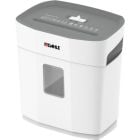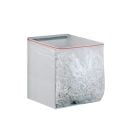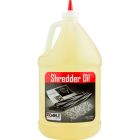Using a Shredder to Prevent Identity Theft
A shredder is your fist line of defense against identity thieves. Here are a few tips about what you should shred, and what to look for in a shredder.
What You Should Shred
We all get all kinds of junk mail, and you never know what kind of information is in those envelopes unless you look inside. The only time you should discard a piece of mail before you look at it is if you are perfectly comfortable putting it through the shredder sight unseen. Once you have checked out the enclosed materials, you can simply recycle them if there is no information that an identity thief could use against you. If there is any personal information at all, however, put that thing through the shredder.
Any documents containing personal information including bank account numbers, passwords and PINs, social security numbers, signatures and credit card statements should be shredded before they are discarded, no ifs, ands or buts about it. Make a habit of discarding these items via a shredder and you will greatly reduce your chances of being victimized.
Buying a Shredder
There are many things to consider before you buy a shredder, but here are some of the main items:
Strip cut vs. Cross cut. The verdict here is in favor of cross cut, hands down. While a strip cut machine can often handle more papers at once, the shreds it creates can conceivably be pieces back together by an identity thief. Not saying it would be easy, just that it is possible. And in this case, with so many high quality cross cut machines available at the same price, there is truly no reason to compromise your security by using a strip cut shredder.
Sheet Capacity. This should only really be a concern for higher volume users. If you are looking for a shredder to use every couple of days for short periods of time (say, after receiving your daily onslaught of junk mail, or paying your credit card bills) then a machine with a sheet capacity of 6-8 pages per pass should be just fine for your purposes. Just so long as you stay within the stated capacity of your machine, you should be able to avoid paper jams and other messes that can occur.
Continuous vs. Intermittent Duty. Again, for a personal use machine, this shouldn't be a big issue. It is something that you will have to keep in mind, however. Personal shredders are only meant to be used for a relatively short duration (say about 15 minutes) before they have to be rested in order to prevent overheating. All this means is that you should take care to use your shredder on an as needed basis rather than letting your papers pile up and trying to take care of them all in an hour-long shredding session.
CDs, DVDs, and Credit Cards. An increasing number of shredder can handle these items and this is a good thing. Personal and confidential information doesn't just come in paper form any more, and getting rid of compact discs safely can be a problem. A machine that shreds credit cards can take the worry out of discarding them as well.









